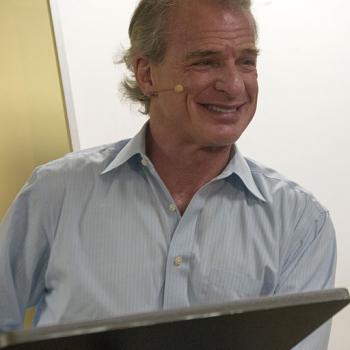
15) Stephen Maitzen: Ordinary Morality Presupposes Atheism
Here is an argument from Stephen Maitzen. And this is an analogy used by Christians themselves. Imagine that you are a five-year-old being taken to the doctors for an injection against a deadly disease. You do not understand how immunisation works. Your parents cannot adequately explain it to you. You just have to know that a greater good will come about from your immunisation. It is a piece of necessary pain and suffering, the needle going in, that will bring about a greater good. Now, an onlooker would never see the doctor just about to inject this poor boy, run over and rugby tackle the doctor so as to stop the pain. That would stop the greater good from taking place.
However, that IS what every god-fearing Christian SHOULD do. Let me explain. imagine an old lady being set upon by some youths across the road. Using our ordinary morality, if we saw this, we would like to think we would step in and stop this from happening. But there can be no such thing as gratuitous evil in this world with an all-loving God. This man getting beaten up, as horrible as it is, is necessary for a greater good to come about. By stepping in and helping this woman, we are stopping the greater good from coming about. We would be rugby tackling the doctor to stop those youths!
In other words, as Maitzen states, ordinary morality simply does not make sense under theism. Ordinary morality presupposes atheism. Moreover, this whole scenario of the problem of evil and greater goods coming from suffering is consequentialist in nature. God is USING people as a means to an end. This is the sort of utilitarianism that theists decry, and attack atheists for holding to.














